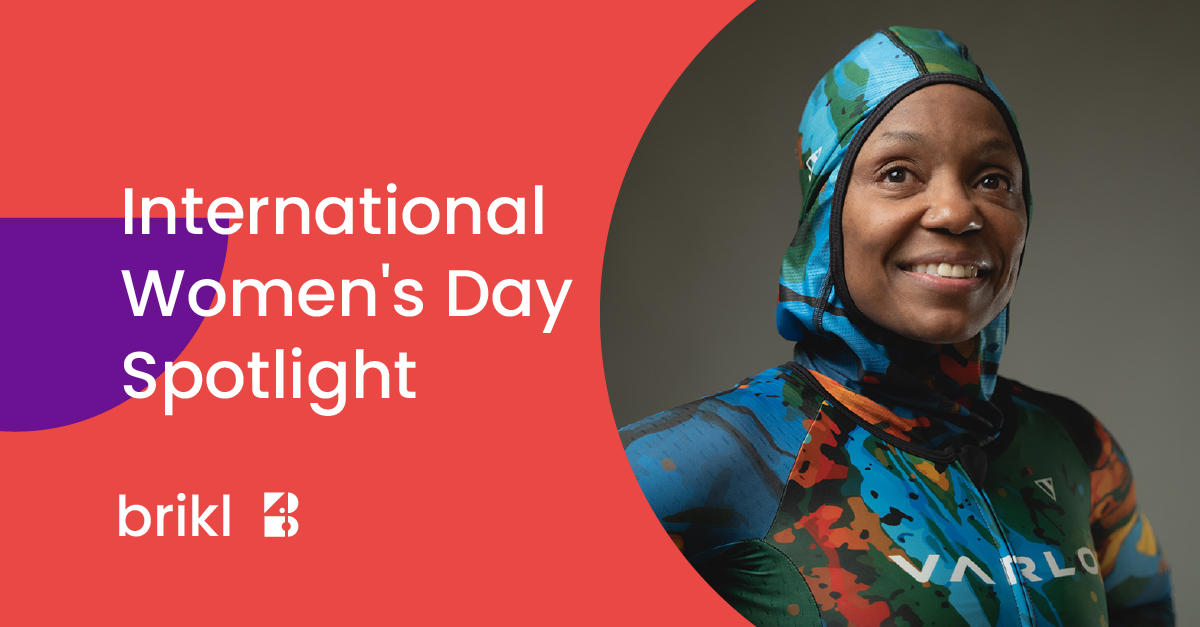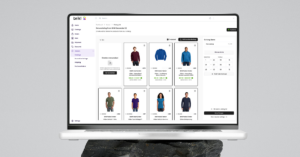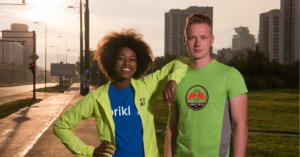I’m thrilled to share the incredible journey of my friend Khadijah Diggs, a Muslim woman who dreamed of competing in triathlons but faced countless obstacles due to the lack of fully covered race suits.
Table of Contents
A quick word from Jason Reinhardt
, Brikl’s Chief Commercial OfficerA quick word from Jason Reinhardt
, Brikl’s Chief Commercial OfficerI’m thrilled to share the incredible journey of my friend Khadijah Diggs, a Muslim woman who dreamed of competing in triathlons but faced countless obstacles due to the lack of fully covered race suits.
As a designer and advocate for inclusivity, I worked closely with Khadijah to design a suit that would meet the demands of an Ironman Triathlon. It was a challenge, as the suit would have to cover Khadijah fully, which was not allowed in the sport then.
Khadijah’s first races wearing the suit were extremely controversial, with many spectators and even race directors accusing her of cheating and threatening to disqualify her. But we knew what we were doing was important not just for Khadijah but for all Muslim women who wanted to compete in triathlons while adhering to their religious beliefs.
We decided to take action and seek a rule change for triathlons that would “include” everyone, regardless of their religious or cultural background.
I’m so proud to have been a part of this uphill, four-year battle helping Khadijah make such a significant impact worldwide. The journey was not easy, but it was worth it, as it represents a critical step towards inclusivity and respect for diversity in sports.
I cannot stress how proud I am of Khadijah. She is a warrior with a kind, loving heart.
I’d like to say thank you to her for her courage, strength, and tenacity, and congratulations on a huge win for Muslim women everywhere.
The world should evolve. To achieve this, people with big hearts need to work to change it for the better every day.
The Ironman race is considered one of the toughest one-day endurance events in the world.
Professional and amateur athletes train for months for the event, which consists of a long-distance triathlon 2.4-mile (3.86 km) swim, a 112-mile (180.25 km) bike ride, and a 26.2-mile (42.20 km) marathon run.
The physical and mental fortitude needed to tackle this challenge is incomprehensible to most of us.
So imagine standing at the start of a race, adrenaline up, only for a hand to clamp around your arm.
Looking up, you see a man who tells you to move away from the professional athletes at the front and head toward the back to join the novices.
You know immediately what the issue is. You’re wearing a hijab with your ROKA Team USA kit – it’s completely aligned with the rules and regulations of the race. It doesn’t give you a competitive advantage, you’re not hiding headphones underneath.
It does nothing but signify your faith.
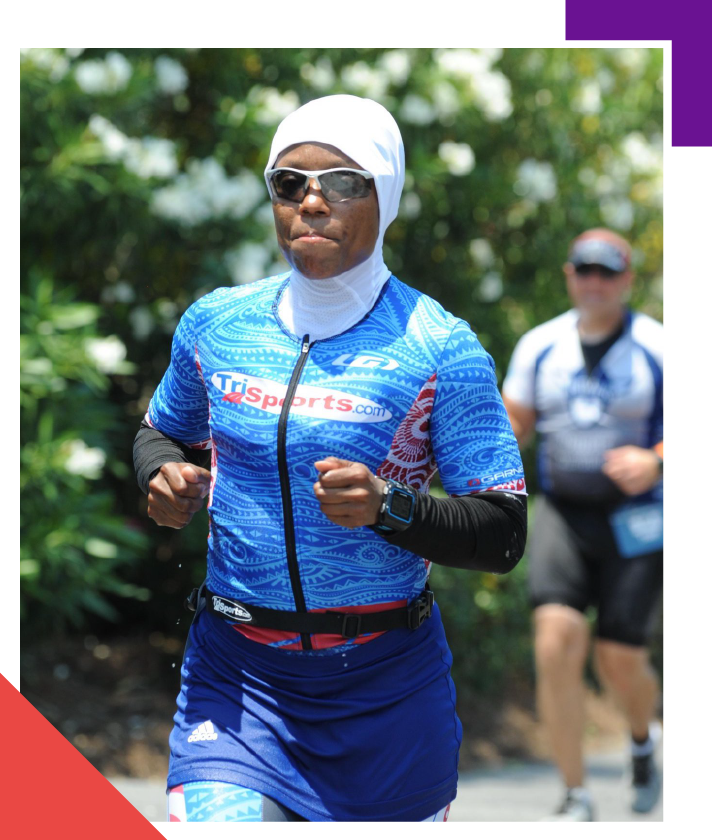
Being moved to the back isn’t about the race, it’s about making you invisible.
An Ironman announcer and a race official see what’s going on. “She’s in fully certified kit,” one of them says, coming over. “Let go of her.”
They then turn to you and ask sympathetically, “Does this happen often?”.
What do you say?
Khadijah versus the (sporting) world.
Every time Khadijah Diggs competes, she’s at the mercy of race directors as to whether her results will count:
“The 2018 Long Course Championships disqualification; the Ironman Augusta race that same year, where I had been pulled off the starting line; the local 2016 race where another athlete questioned an official, “Why does she get to wear that thing?”.
The Ironman Raleigh in 2015, where I was told that I could not start with my age group and would have to start at the back of the race with novice swimmers. When I refused, I was told I would be pulled from the start line.
All of these experiences were because I compete in hijab.”
As Khadijah speaks, there’s a mix of defiance and determination in her eyes, but there are also visible tears.
“I know it’s not everyone. I love the triathlon community. I love everything about training and the silence on the swim. And cycling… I’m a good cyclist, so I like being over-confident and talking smack when I race. People laugh when they see how animated I am, they’re like, “Yo, the Muslim girl was talking trash!”.” She laughs.
These are the experiences that she wants other Muslim women and young girls to have, where they’re part of something, not set apart.
The need for speed. The need for better kit.
Khadijah has fought long and hard to get race directors and senior officials to create more inclusive rules for hijabi athletes, but it’s hard to fight against rules that aren’t written down.
Before competing in any Ironman race, she must let the race director know that she’s coming and let them see what she plans on wearing.
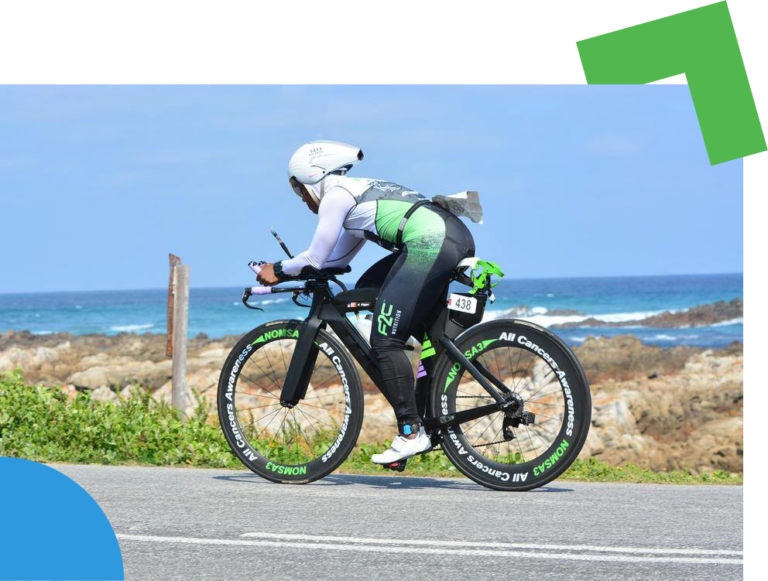
“It was almost like before every race, I had to ask permission to be there,” she comments. Reasons cited for not being allowed to race in hijab ranged from a performance advantage to safety.
“But nothing was coming off my body,” Khadijah exasperatedly says. “I wore a sports hijab. When I swim, I swim in a swim cap and would put my hijab on over my swim cap when I got out of the water, so safety isn’t an issue. And as for having a performance advantage, I am baffled why anyone would think that participating in an endurance event fully covered is somehow an unfair advantage”.
Khadijah and other hijabi athletes tackle extra drag on their swims and higher core temperatures from running and riding wearing long sleeves and full-leg kits.
“I challenge anyone to compete in a long-distance running race, or a triathlon between 70.3 and 140.6 miles fully covered and still be able to honestly state hijabis are somehow receiving an unfair advantage,” she comments.
And that’s the other thing: Custom sportswear companies that design kit for hijabi athletes are few and far between.
“There was nothing out there. There was a custom sportswear company working with my sponsor, F2C, so I ordered a hijabi kit from them. After a few weeks, it finally came, it was very heavy. When I wore it, I thought I was going to burst into flames. It was so hot!”
Chance encounters. An enduring alliance.
That’s when she met our very own Jason Reinhardt, who was running a custom sportswear company called Peaks Apparel.
He worked alongside Khadijah to design the world’s first Muslim trisuit that considered sportswear fundamentals, such as vent holes and choosing the right colors of performance fabrics to stop women who wanted to race covered from overheating.
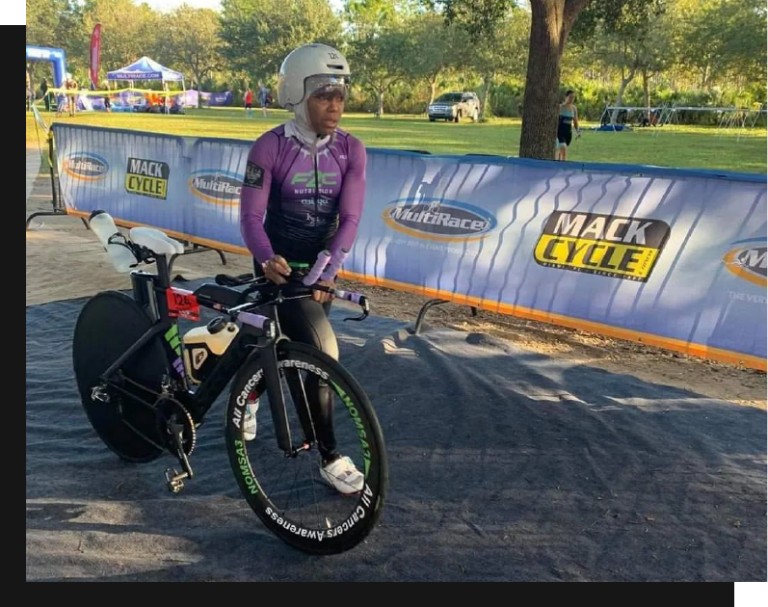
Khadijah wore the custom Muslim trisuit designed by Jason (CCO of Brikl)
“When I first started racing, I did it in an open water swimsuit and a t-shirt. The suit Jason designed for me looked like everybody else’s for the first time, and it had these sleeves that I couldn’t even feel on my skin.”
Khadijah remembers. “It felt like wearing a revolution”.
Despite being an activist for rule changes around hijabi kit since 2016, it was at this moment that she physically felt the boundaries that existed for other female Muslim athletes.
Khadijah was already paying three times more than traditional athletes for her custom kit, but this level of comfort made her realise her penalties also existed in the fabrics she was being forced to wear.
“I said to Jason that we need to have affordable kit like this for non-traditional athletes.“
Jason had looked at Khadijah with solemn determination and said, “It’s high time we made Ironman aware that what they’re asking you for at every race constitutes a rule change.”
Ambassadors for change.
Individual passion is often the kindling needed to clear obstacles to progress.
The United States of America Triathlon (USAT) is the national governing body for the multisport disciplines of triathlon, duathlon, aquathlon, and winter triathlon in the United States. The International Triathlon Union (ITU) is the international governing body for the sport of triathlon, as recognized by the International Olympic Committee (IOC).
Jason and Khadija reached out to the United States of America Triathlon (USAT) and Ironman leadership, who ultimately referred us to the International Triathlon Union (ITU), the governing body for the sport. They reached out to the ITU and received a response that the rule change could be brought to the committee for consideration, but this vague response was not enough. They continued to follow up, sending emails and making calls.
Khadija made it her mission to change the landscape of triathlon and encourage more Muslim and African-American women to take up the sport by launching the Diversity Inclusion Syndicate by Khadijah (D. I. S. K). All the while, Jason remained an immovable annoyance to race directors and their secretaries alike.
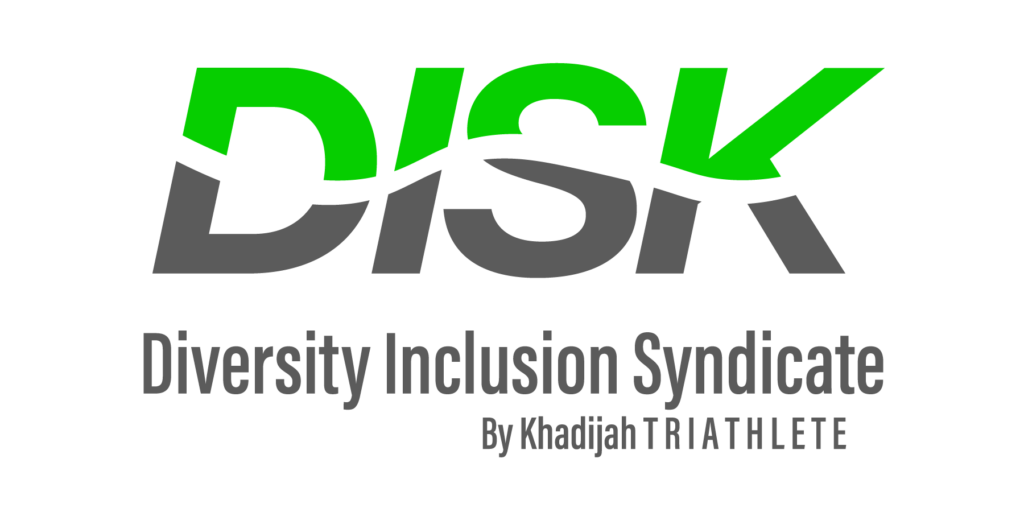
“I refused to budge,” Jason laughs now. “The way they were dodging the subject was just plain infuriating. And you wouldn’t do that if you had a legitimate point.”
While Jason sought answers from racing bodies who wouldn’t put rules in black and white, Khadijah took great joy in engaging communities.
“I actively solicited African American women and Hijabis to participate in a year-long, comprehensive triathlon experience. They received speciality coaching in the three disciplines, [plus] strength training, yoga classes, two training camps, two open water swim clinics, and a team experience”.
Khadijah was their primary coach, and it was through this close contact that she heard their stories of exclusion as well as experiencing their enthusiasm first-hand”.
Her activism was gaining momentum and the attention of custom sportswear brands such as VARLO, who most recently designed a hijabi kit – created for hijabi and non-hijabi athletes – in a D.I.S.K design.
”When they came out with their kit, I had to turn my phone off because I was getting direct messages from all over the world – Malaysia, Kenya, South Africa, Norway, UK… Even if I never, if even if I never become a VARLO athlete, I will be loyal to them till the day I die.” Khadija says tearfully.
Trauma to triumph.
Then astonishingly, after years of fighting for a rule change, the USA Triathlon 2023 Multisport Competition rules acknowledged this: “For sun protection or for religious reasons, an athlete may wear a one-piece or two-piece suit. The suit may cover the shoulders and arms but not extend above the neck or past the wrist or ankle, except for a suit worn for religious reasons when it may cover the head or hair.”
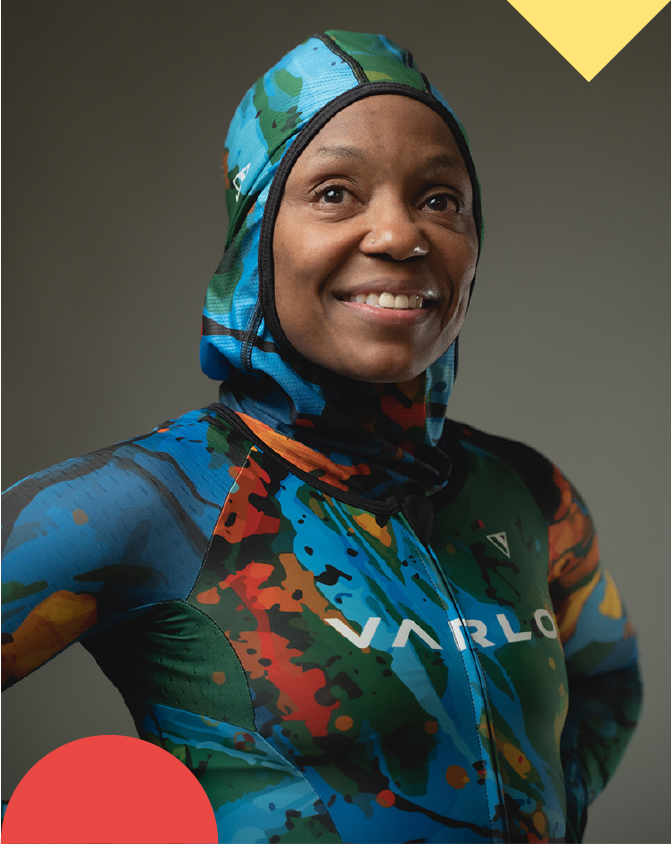
“We talk about barriers to entry and about boundaries during our training sometimes. The kit issue, the feelings of being unwanted, physically uncomfortable, the mental toll, the financial toll… this rule change makes it all worth it. It removes a boundary that will now allow women who previously thought that they were eligible to compete to compete”.
In Khadijah’s words, rules should not be used to dehumanize an athlete simply because they are not the traditional athlete. There couldn’t be a greater acknowledgment of this now down in black and white. And for every generation of hijabi triathlete that makes it over the finish line, there’s a hope they’ll know Khadijah’s story to keep pushing the boundaries for true inclusivity.
